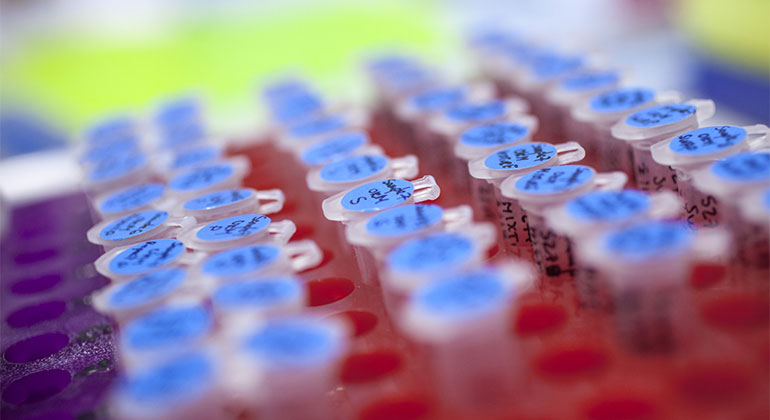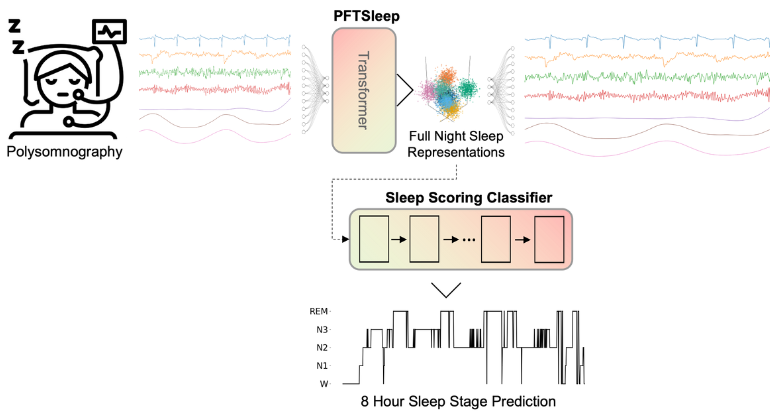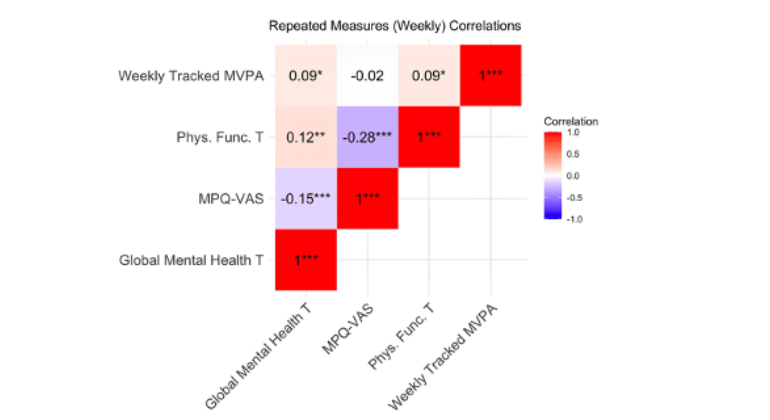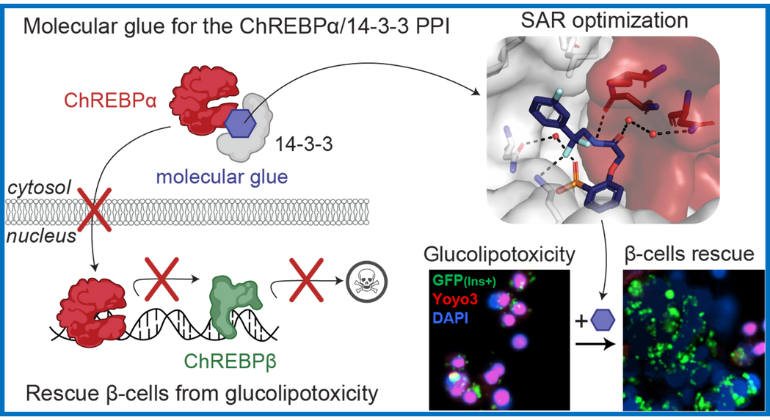New Tool Enables Researchers to Rapidly Manipulate Protein Levels in Mammalian Cells
A research team headed by investigators at the Icahn School of Medicine at Mount Sinai (ISMMS) has developed a tool that allows scientists to quickly manipulate levels of two proteins in the same cell. They say the method, dubbed a “dual molecular tuner,” offers an easy way to perform in-depth analyses in mammalian cells in general, and stem cells in particular.
Their study, published May 27 in Nature Communications, uses two plant hormones to target specific proteins for degradation, thus allowing researchers to reduce these proteins to levels they choose. This process happens within minutes, enabling the scientists to monitor what happens in the cells as these proteins are depleted.
“We can, for example, monitor differences in cell cycle depending on how one or another protein is depleted, because this tool acts so quickly and so effectively,” says the study’s senior investigator, Ran Brosh, PhD, a postdoctoral researcher in the laboratory of the study’s corresponding author, Ihor R. Lemischka, PhD, Professor of Pharmacological Science, Developmental and Regenerative Biology at ISMMS.
Not only can researchers choose how much of one or both chosen proteins can be degraded, the entire process is reversible, Dr. Brosh says.
“Loss-of-function studies are key to understanding how genes work, but methods to rapidly and effectively disturb the function of mammalian genes — particularly stem cells — are scarce. This dual molecular tuner, in which you can manipulate two proteins independently of each other, is very useful for a wide variety of studies that have been hard to do to date, such as decoding signaling networks or protein interactions,” he says.
The tuner can be used for two proteins because researchers have identified two plant hormones that help signal the cell’s targeted destruction of the proteins being studied.
The hormones are auxin and coronatine, the bacterial analogue to the plant hormone jasmonate, both of which regulate plant physiology, but are completely non-toxic to humans — “We eat these hormones in our vegetables and salads every day,” Dr. Brosh says.
The way the system works is that researchers silence the gene or genes of interest using traditional gene silencing techniques while simultaneously delivering the same gene(s) in a form they can control. These genes now contain sequences that produce a short peptide called a degron — its function is to regulate protein degradation — that is fused to the encoded protein.
A third component that is introduced (all three contained within a single lentiviral vector) is a receptor for the plant hormone. When the cells are treated with the hormone it binds its receptor, which then targets the protein-degron fusion for destruction. “Our tuner allows a researcher to harness the cell’s degradation system, and we can turn it up or down as we wish – like dimming lights a little or all the way,” Dr. Brosh says.
Unlike other gene editing techniques, which can take months to apply to a single gene, establishment of the dual tuner takes one or two weeks of lab work, he adds.
While the tool is meant for research, it can have clinical application such as screening for drug targets, Dr. Brosh adds.
Collaborators include researchers from the University of Washington which also shares a patent with ISMMS for the development of coronatine as a research tool.
This work was supported by grants from New York State Stem Cell Science, the National Institute of General Medical Science and the Howard Hughes Medical Institute.
Competing financial interests: The authors declare no competing financial interest.
About the Mount Sinai Health System
Mount Sinai Health System is one of the largest academic medical systems in the New York metro area, employing 48,000 people across its hospitals and more than 400 outpatient practices, as well as more than 600 research and clinical labs, a school of nursing, and a leading school of medicine and graduate education. Mount Sinai advances health for all people, everywhere, by taking on the most complex health care challenges of our time—discovering and applying new scientific learning and knowledge; developing safer, more effective treatments; educating the next generation of medical leaders and innovators; and supporting local communities by delivering high-quality care to all who need it.
Through the integration of its hospitals, labs, and schools, Mount Sinai offers comprehensive health care solutions from birth through geriatrics, leveraging innovative approaches such as artificial intelligence and informatics while keeping patients’ medical and emotional needs at the center of all treatment. The Health System includes approximately 9,000 primary and specialty care physicians and 11 free-standing joint-venture centers throughout the five boroughs of New York City, Westchester, Long Island, and Florida. Hospitals within the System are consistently ranked by Newsweek’s® “The World’s Best Smart Hospitals, Best in State Hospitals, World Best Hospitals and Best Specialty Hospitals” and by U.S. News & World Report's® “Best Hospitals” and “Best Children’s Hospitals.” The Mount Sinai Hospital is on the U.S. News & World Report® “Best Hospitals” Honor Roll for 2024-2025.
For more information, visit https://www.mountsinai.org or find Mount Sinai on Facebook, Twitter and YouTube.

Mount Sinai Researchers Identify Key Gut Sensor That Regulates Digestion and Immunity
Mar 24, 2025 View All Press Releases
Mount Sinai Leads Phase 3 Trial in Myelofibrosis Treatment
Mar 19, 2025 View All Press Releases
Personalized Cancer Vaccine Proves Promising in a Phase 1 Trial at Mount Sinai
Mar 17, 2025 View All Press Releases
New AI Model Analyzes Full Night of Sleep With High Accuracy in Largest Study of Its Kind
Mar 17, 2025 View All Press Releases
Mount Sinai Researchers Develop Method to Identify Dormant Cells That Carry HIV
Mar 13, 2025 View All Press Releases
Physical Activity Boosts Mental Health in Women With Chronic Pelvic Pain Disorders
Feb 26, 2025 View All Press Releases


